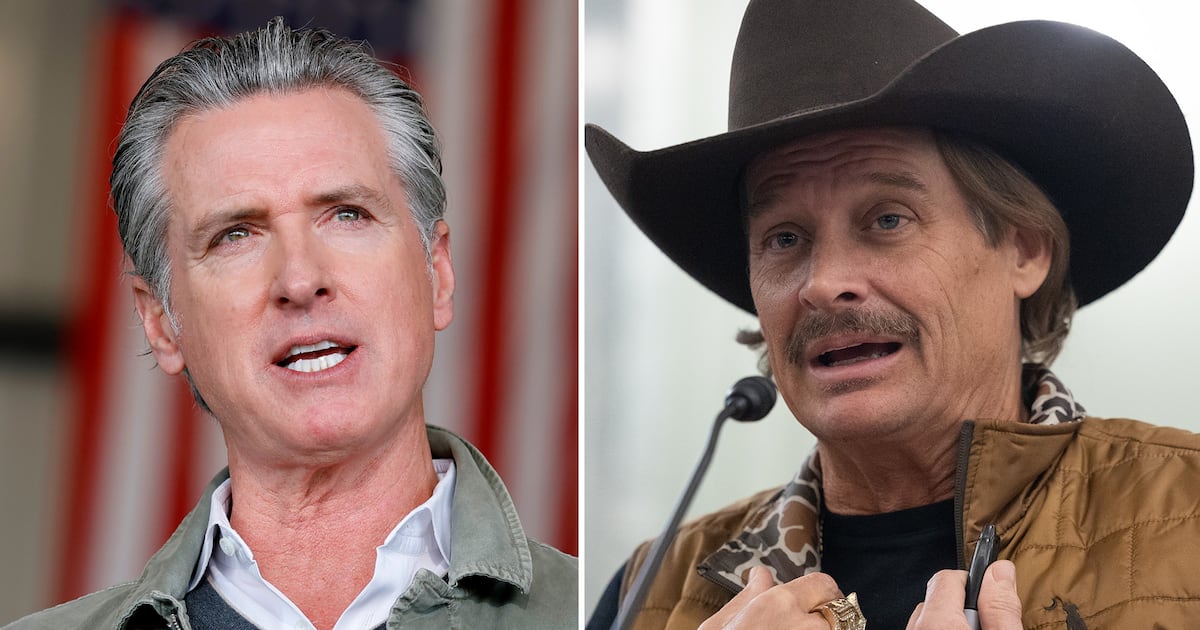With Brett Kavanaugh’s confirmation to the Supreme Court looking more likely, some top strategists in the Democratic Party have begun warning members to quickly move off the nomination after it comes up for a vote.
Accusations that Kavanaugh sexually assaulted a woman in both high school and college have galvanized progressives and led to a growth of online donations to Democratic candidates. But there are growing fears among Democrats that the epicenter of the national political conversation has moved away from more friendly terrain and that Republicans have become mobilized by the Kavanaugh fight in even more dramatic ways.
“The truth is that in nationalized elections—most of which are presidential but some of which can be midterms—if the dominant issue terrain is around the cultural sphere, Democrats lose,” said Kenneth Baer, a former Obama administration official and founder of Crosscut Strategies, LLC. “I cannot think of any election in the postwar period where Democrats have won when that was the case.”
For the first time since the Kavanaugh accusations surfaced, a fissure has become apparent within the Democratic ranks over what the best political strategy is moving forward. While Baer said he was heartened that Democrats were still running their campaigns on economic issues, he and others expressed fear that the party was becoming too consumed by the Supreme Court fight. Others argued that Kavanaugh's nomination had cemented a portrayal of Republicans as acutely anti-women.
“This has been a profound insult,” Washington Gov. and Democratic Governors’ Association chair Jay Inslee told The Daily Beast in an interview this week. “It is not a surprise. Kavanaugh is the perfect embodiment of Trump. It’s almost like he went out and looked for somebody who meets his own qualifications of disrespect and incivility. So I guess we shouldn’t be shocked.”
“We don’t have Republican gubernatorial candidates,” Inslee added. “We have lemmings. And they’re following him right over the cliff.”
The dispute over the politics of the Kavanaugh fight has only deepened in recent days. A slew of polls showed Republicans making gains that they themselves attributed to the party rallying behind Kavanaugh. Sen. Mike Rounds (R-SD) told The Daily Beast that he had seen internal campaign committee data showing much the same.
“Republicans have felt that this has become an ideological war, one in which liberals or Democrats are fighting to stop a conservative from rightfully taking his place on the Supreme Court,” Rounds stressed.
Fundraising numbers also seemed to bolster the idea that the past week had been a boon for the party. Michael Ahrens, a spokesman for the Republican National Committee, told The Daily Beast on Thursday that the committee experienced its “largest online fundraising day ever” on Sunday, on top of a “huge surge in donations in the last week.” On Sunday alone, Ahrens said, the RNC gained 1,000 new first-time small-dollar donors.
Throughout Trumpworld, Kavanaugh’s triumph was already seen as a foregone conclusion on the Thursday ahead of the vote.
“Judge Kavanaugh has managed to do what no one else has been able to so far: galvanize and energize conservative voters for the midterms,” said Robert Jeffress, a Dallas megachurch pastor and Trump ally, who had sounded far less sanguine about Kavanaugh’s odds just weeks prior.
Andrew Surabian, a former White House official who is now a top political adviser to Donald Trump Jr. said that Kavanaugh had helped Republicans close the voter intensity gap with Democrats heading into what just weeks ago appeared to be a catastrophic midterm election contest.
“Pre-Kavanaugh, Democrats were at a 9.5 motivation level and Republicans were at a 6,” Surabian said. “Post-Kavanaugh, Democrats are at a 10 and Republicans are at a 9.”
Democrats had their share of numbers to boast about too. A campaign to raise money for a prospective challenger to Sen. Susan Collins (R-ME), should she vote to confirm Kavanaugh, had already raised close to $2 million as of Thursday afternoon.
“Senators still have a chance to be heroes and vote no,” said Liz Jaff, president of the Be a Hero PAC, which spun out of the activist work of Ady Barkan, who is dying of ALS. “If they don't we will fund their future opponents. We cannot feel safe with a man like that on the court so they shouldn’t feel safe that they will win their election.”
Others pointed to a spike in contributions through the online-donation site ActBlue as evidence that the politics of Kavanaugh were, essentially, a wash.
“You’re seeing an outpouring of support for our candidates and causes,” Sen. Chris Murphy (D-CT) told The Daily Beast. “You also have to recognize that at this point in the cycle is the natural moment when both sides start to consolidate around their party’s nominees. So I’m sure that there has been some element of increasing enthusiasm among Republicans, but this is also the time of the election cycle where Republicans were going to come back home anyway.”
But even groups on the progressive wing of the Democratic party acknowledged that the confirmation fight over Kavanaugh had been a mixed bag politically.
Kevin Mack, the chief strategist on Tom Steyer’s Need to Impeach campaign said that levels of volunteering, petition signing, online actions and town hall attendees were way up over the past ten days. The organization had more than 18,000 people sign written note cards calling for impeachment on Wednesday night alone. But, he cautioned, “Kavanaugh has taken the spotlight off Trump which is bad for Democrats and at the same time, allowed the GOP to focus on cultural issues which expands their eroding base.”
Democrats have long struggled over how best to balance their focus on social and economic matters. But that tension has been particularly pronounced in recent years, when the diversity of the Democratic Party has grown and Donald Trump’s emergence on the political scene has regularly reignited seemingly dormant culture wars.
During the 2016 campaign, Baer argued in a much discussed op-ed that Hillary Clinton had allowed herself to be roped into fights with Trump over gender, race, and sex when she should have portrayed him as a phony populist and bumbling plutocrat. Ultimately, a small sliver of voters in three key battleground states appeared to buttress that theory. The Kavanaugh debate, he warned, was leading Democrats down a similar path.
“My concern is that the biggest story that the entire country is focused on is Kavanaugh and the issues that his nomination has arisen,” he explained. “Yes, we should oppose him for many reasons. Yes, he should be investigated. But the politics of it are that if that becomes the overwhelming narrative going into the election, it could hurt Democrats.”
But veterans of the Clinton campaign said it was illogical to think that Democratic lawmakers spanning across the country—let alone a candidate for president—could somehow move the national political conversation away from an individual topic, let alone one as singularly riveting as a Supreme Court confirmation fight involving sexual harassment allegations. Even if they could, they added, it would be a disservice to the moral weight of the moment.
“The fault in that thinking is not understanding that this is a historical moment for women and that this will go down in history at the moment it was revealed how rampant sexual assault is and how it is no longer going to be tolerated,” said Jen Palmieri, the communications director for Clinton’s presidential campaign. “To try to ignore the passion, anger, and confusion around the Kavanaugh nomination and hope you can draw attention to another part of the agenda is flawed at this moment. You can’t even explain how you would do it.”
So far, the prevailing sentiment within Democratic circles is that the dispute over the politics of Kavanaugh will ultimately resolve itself. A first vote on the nomination will come Friday morning. Should that hurdle be cleared, the final vote will come Saturday.
The prevailing expectation is that he will be confirmed by the narrowest margins and the conversation will drift elsewhere shortly thereafter. As a general matter, it would constitute a massive, emotionally difficult defeat for the party. Politically, some strategists and activists concede it might be the best of all outcomes.
"We're seeing an incredible mobilization of women to fund grassroots campaigns to take down the people responsible for putting a sexual predator on the [Supreme] Court,” remarked Sean McElwee, co-founder of the progressive think tank Data for Progress. “Pundits are often dismissive of the idea that these votes will have consequences two or four years away. By banking the fucking rage that people are feeling with this fraudulent vote, activists are ensuring that a wrong decision will linger over the re-election bids of these senators for years to come."
—With reporting by Andrew Desiderio











